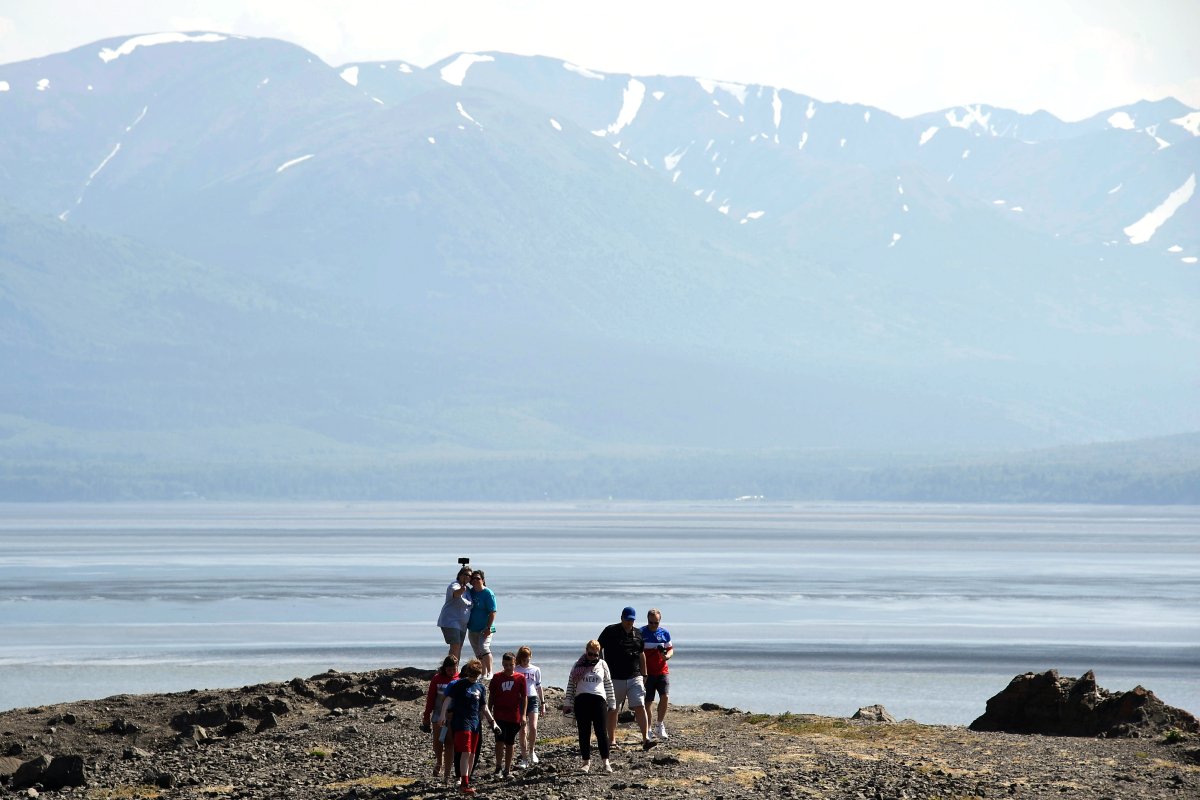Alaska’s heat wave made history on the Fourth of July with sweltering temperatures crushing a decades-old record.

The airport in Anchorage recorded a temperature of 90 F (32 C) on Thursday, according to the U.S. National Weather Service, breaking an all-time record set back in 1969 by five degrees Fahrenheit.
The record-breaker comes just days after Anchorage saw its hottest June ever. The weather service said “all 30 days in June had above-average temperatures” — approximately 60.5 F (16 C), about 5.3 degrees above average.
The unusual conditions are just another sore spot for Alaska as a heat wave drives wildfires across the state and pushes continued glacier melt.
The Swan Lake wildfire in the southern part of the state has been burning since a lightning strike on June 5, according to Reuters.
The blaze has reportedly devoured more than 68,000 acres of land and blanketed much of Anchorage in smoke. Local media reported that people were walking through midtown Anchorage over the weekend with their shirts covering their mouths.
WATCH: NASA study finds extensive greening in Canada and Alaska

In the north, a wildfire in Fairbanks has forced widespread evacuations.
In all, more than 354 wildfires are burning in Alaska. The Alaska Interagency Co-ordination Center estimates that as of Independence Day, 634,000 acres have already burned.
While the number is significant, one climate specialist said it’s “not dramatically” more than usual for this stage of the wildfire season in Alaska.
But the unusually hot and dry weather has only fanned the flames, turning acres of land flammable.
A widespread burn ban remains in effect in parts of the state. The Alaska State Fire Marshal’s Office has also banned the sale and use of fireworks, which reportedly left Anchorage without a Fourth of July fireworks display.
A dense smoke advisory was also issued for Anchorage last weekend, with officials warning of health and visibility concerns.
The city’s mayor, Ethan Berkowitz, called the weather “unprecedented.”
“I tease people that Anchorage is the coolest city in the country — and climatically this is true — but right now, we are seeing record heat,” he told the New York Times.
In the south-central area, melting glaciers and mountain snowfields are causing rivers and streams to swell, raising flood concerns.
Alaska is considered to be on the “front lines of climate change,” according to the Fourth National Climate Assessment, and is warming faster than any other state in the U.S.
“The rate at which Alaska’s temperature has been warming is twice as fast as the global average since the middle of the 20th century,” the report states.
“Climatic extremes are expected to change with the changing climate.”
The National Weather Service has described the recent mix of unusual weather as having a “Jekyll and Hyde nature.”
The service anticipates that hot and dry conditions will continue for several more days and said that record high temperatures could be repeated before Alaska sees a reprieve from the heat wave.
—With files from Reuters




Comments